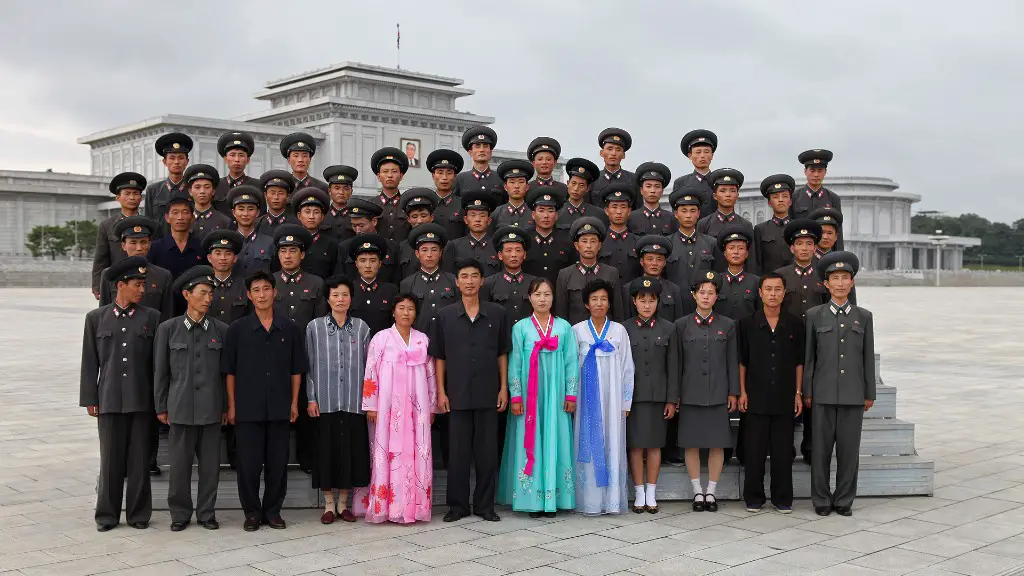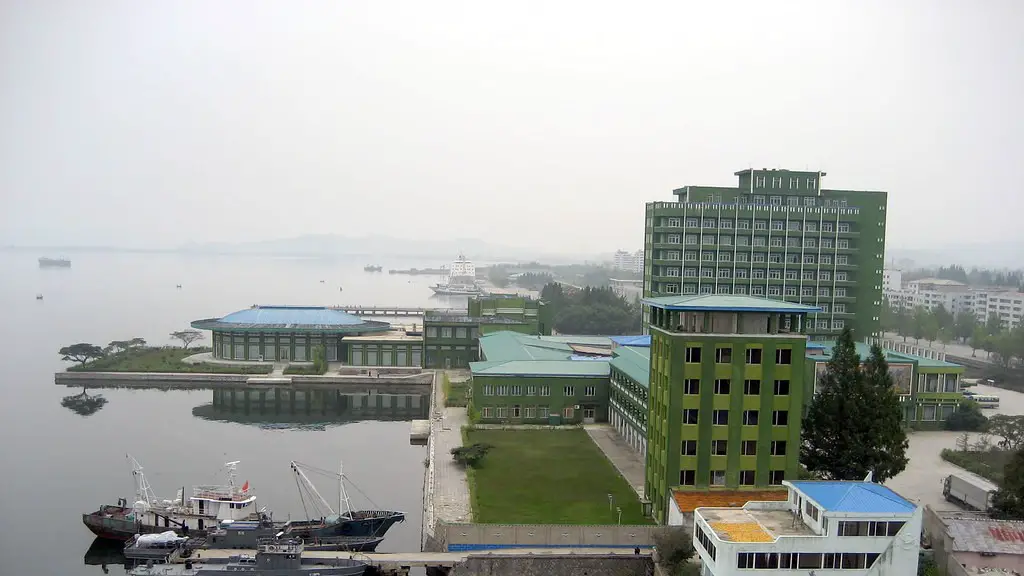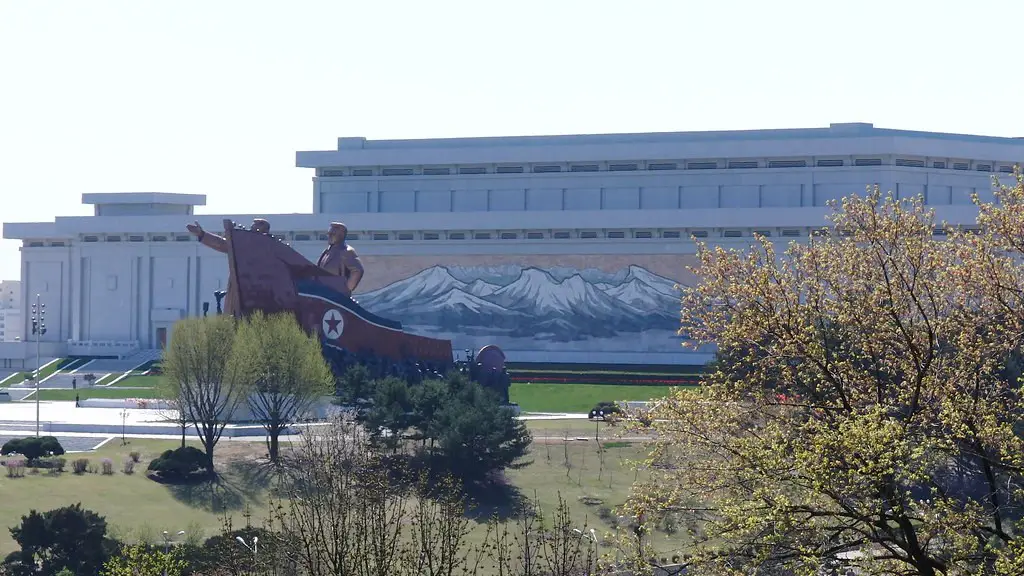Collateral Damage from a North Korean Nuclear Attack
Nuclear weapons are incredibly destructive devices, capable of exacting tremendous harm upon those in their immediate vicinity and beyond. An attack by North Korea on the U.S. with a nuclear explosive device would be the worst possible disaster. Such an event would immediately kill millions of people and unleash life-altering consequences for the entire world.
The most direct effect of such an attack would be the death of millions, both on the American side and on the Korean side. If a large-scale nuclear weapon were launched on a city like Los Angeles, the death toll could easily be in the millions. People would be vaporized and buildings, homes, and infrastructure all would be destroyed in an instant. Such is the power of a nuclear weapon.
The indirect effects of a North Korean nuclear attack on the US would be even more devastating. The radiation emitted by such a weapon would travel across the world, and could potentially be devastating to global health, leading to long-term health issues that would affect generations. Additionally, the economic impacts from such an attack would be catastrophic. The loss of life, homes, businesses and infrastructure would cost hundreds of billions of dollars, and the economy would be severely disrupted for years. Already facing one of the worst economic recessions in history, the consequences of such an attack could be devastating.
The impact of such an attack on the environment would be especially severe. The immeasurable toll on wildlife, vegetation, and even the atmosphere is impossible to calculate. Toxic radiation from the detonation of a nuclear weapon would linger for decades, and the effects would be felt across the world. Damage to the ozone layer, air and water pollution, as well as long-term health effects would all be devastating, and the long-term impacts of a North Korean nuclear attack would be felt for generations to come.
The psychological effects of a North Korean nuclear attack would be incalculable. The sudden overwhelming sense of loss, despair, and shock surrounding such an event is unimaginable. Even those who were not directly affected by the attack would suffer psychological trauma, leading to depression, anxiety, and other long-term mental health issues.
North Korea’s Actions Leading Up to a Nuclear Attack
The most pressing concern in regard to a North Korean nuclear attack is to understand the mechanics behind such an occurrence. North Korea has been developing nuclear capabilities for some time and has been testing nuclear devices for years. This has caused alarm around the globe, and the intensifying political tensions have been growing. We may have already reached a point where a nuclear strike from North Korea becomes more likely.
North Korea’s leadership has been erratic and volatile, and the government has become increasingly isolated from the international community. This has been further exacerbated by the U.S.’s sanctions and economic pressures, which have caused North Korea to take even more extreme actions. North Korea’s leadership has made it clear that they are not afraid to use nuclear weapons if it suits their interests, and this has caused alarm in the global community.
It is important to note that North Korea’s nuclear capabilities are limited. They have not yet achieved full nuclear capabilities, and they do not yet have the capability to launch a nuclear attack on the U.S. mainland. But they have launched missiles towards South Korea and Japan and they have the capability to launch a nuclear strike on those countries.
So what happens if North Korea develops the capability to launch a nuclear attack the U.S.? The answer is we don’t know. Essentially, the U.S. and the international community would have to make a judgement call on how to handle the situation. The consequences of a nuclear strike from North Korea on the U.S. would be catastrophic, and it would require careful consideration from the U.S. government and the international community.
The U.S. Preparedness for a North Korean Nuclear Attack
The U.S. has long been preparing for such a possibility, and has invested heavily in missile defense technology and deterrents. The U.S. has also been working closely with its allies in the international community, such as Japan and South Korea, to create a unified response in the event of a nuclear attack from North Korea.
The U.S. has made it clear that it will use all available resources to respond to any nuclear threat from North Korea. This includes the traditional methods of military defenses and retaliatory strikes, as well as non-military approaches such as economic sanctions, diplomacy, and deterrence. While the U.S. is prepared for a North Korean nuclear attack, it would still be extremely costly and difficult to mitigate the devastating effects of such an attack.
The International Response to a North Korean Nuclear Attack
In the event of a North Korean nuclear attack on the U.S., the international community would likely respond with a unified response. This would involve a joint effort of numerous nations in the international community to stop the North Korean aggressors, whether through economic or military means.
The response of the international community would vary depending on the extent of the attack. Nations such as Japan, South Korea, and China would all be greatly affected by a North Korean nuclear attack on the U.S., and they would likely be even more motivated to put a stop to it. The United Nations has also indicated that it would respond swiftly and decisively to any North Korean nuclear attack, regardless of the target.
Economic Implications of a North Korean Nuclear Attack
A North Korean nuclear attack on the U.S. would have severe economic effects, both for the U.S. and for the international community. Immediately, there would be tremendous financial losses, as businesses and infrastructure would all be destroyed. But even more importantly, the longer-term economic effects would be devastating.
It is likely that both the U.S. and the international community would impose economic sanctions on North Korea in response to a nuclear attack. This would likely further isolate North Korea from the global economy, further damaging their economy and reducing their ability to buy and sell goods.
Additionally, it is likely that the global economy would suffer in the immediate aftermath of a North Korean nuclear attack. The U.S. economy would undoubtedly take a severe hit, and would be in for a prolonged economic recession. The ripple effect of such an attack would be felt far beyond the U.S., as the global economy would also experience losses.
The Effect of a North Korean Nuclear Attack on U.S.-Korean Relations
The effect of a North Korean nuclear attack on U.S.-Korean relations is difficult to predict. Such an attack would undoubtedly further increase the political tensions between the two nations, which have been steadily increasing in recent years. North Korea has been isolating itself from the international community, and a nuclear attack on the U.S. would further worsen this situation.
The U.S.-Korean relationship is complex and has long been based on mutual distrust, so a nuclear attack would only further erode this relationship. It is likely that the U.S. would use diplomatic, economic, and military measures to respond to a nuclear attack from North Korea.
It is unclear how North Korea would respond to such measures, but it is likely that the ramifications would include further damage to the already fragile relationship between the two countries, and a further deterioration in the international community’s relations with North Korea.
U.S. Military Readiness for a North Korean Nuclear Attack
The U.S. is prepared for a North Korean nuclear attack in terms of military readiness. Our nation has numerous military bases located around the globe, and our military is always prepared and on alert. The U.S. has invested heavily in missile defense technology, and this technology is continually being tested and improved.
In the event of a North Korean nuclear attack, the U.S. military would be ready to respond with a swift and effective response. The U.S. has an array of conventional weapons at its disposal, as well as its own nuclear arsenal. The U.S. could respond to a North Korean nuclear attack with a military strike of its own, aimed at North Korean territory.
But such an action would be a last resort, and it is unlikely that the U.S. would take that drastic measure. More likely, the U.S. would focus on mitigating the effects of the attack, as well as ensuring that there are no further nuclear launches from North Korea.
The Long-Term Impact of a North Korean Nuclear Attack
The long-term impact of a North Korean nuclear attack on the U.S. would likely be devastating. The death toll would be immense, and the economic, environmental, and psychological effects would reverberate for decades. Such an attack would shift the balance of power in the world and would have far-reaching implications for global politics.
It is also important to note that the ramifications of such an attack would be felt far beyond the U.S., as the effects of radiation, pollution, and economic disruption would affect the entire world. The international community would have to work together to deal with the fallout of such an attack, and the reverberations would be felt for generations to come.
The threat of a North Korean nuclear attack on the U.S. is a very real and very dangerous one. The consequences of such an attack would be catastrophic, and the world must do all it can to prevent it from happening. It is up to the U.S. and its allies to take the necessary steps to ensure that such an attack never occurs, and that peace and stability prevail.


